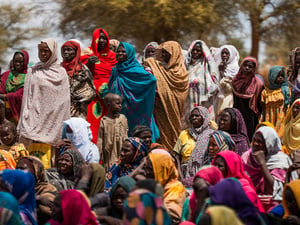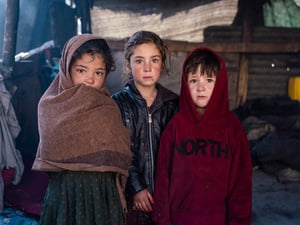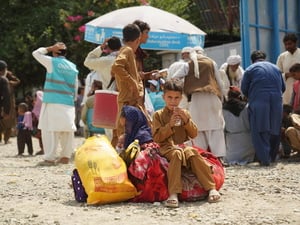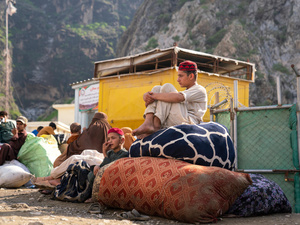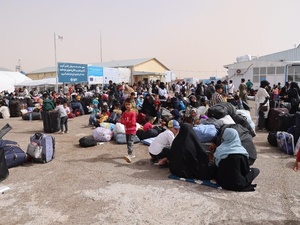UNHCR ExCom Chair Ambassador Comissário visits Iran
UNHCR ExCom Chair Ambassador Comissário visits Iran
Tehran, 31 August - The Chair of UNHCR's Executive Committee (ExCom), Ambassador Pedro Comissário of Mozambique visited the Islamic Republic of Iran from 28-31 August 2015 accompanied by the First Secretary at the Permanent Mission of Mozambique to the United Nations in Geneva Mr. Juvenal Dengo and from UNHCR headquarters, Mr. Johan Cels, Head of the Division of External Relations, Governance and Partnership Service and Mr. Ayaki Ito, Deputy Director of UNHCR's Regional Bureau for Asia and Pacific.
The visit of Ambassador Comissário to Iran comes at a critical juncture five weeks prior to the convening of the High Level Segment (HLS) of UNHCR's ExCom in October 2015 focusing on the "Afghan refugee situation". In view of this important event, Ambassador Comissário takes back with him a good overview of the Afghan refugee situation, most importantly the regional application of the Solutions Strategy for Afghan Refugees (SSAR) - a regional, multi-year strategy for voluntary repatriation, sustainable reintegration and assistance to host countries endorsed by the Governments of Afghanistan, Iran, and Pakistan. Just prior to this visit, the 2015 - 2016 SSAR Portfolio of Projects of Iran with total budget requirement of circa USD 167 million was finalized on 26 August and ready to be presented at the High Level Segment.
During his visit, Ambassador Comissário met with high ranking Government officials, including Deputy Minister of Foreign Affairs Araghchi, Minister of Interior Fazli and Khorasan Razavi Governor General Rashidian. He also met with refugees, representatives of Non-Government Organisations and the international community in Iran.
Lauding the Islamic Republic of Iran's generous hospitality towards Afghan refugees for over 30 years Ambassador Comissario said, "The Islamic Republic of Iran's undertakings in the provision of support and assistance to Afghan refugees, is exemplary in the eyes of the international community". He also added that the focus of this year's meeting is to redirect the attention of the international community towards the Afghan refugee situation, with the hope of finding durable solutions in line with the repatriation of Afghans to their homeland and their reintegration into Afghan society. In addition the meeting aims to better acquaint the international community with the services and assistance rendered by host countries to Afghans.
Several field visits were also part of the visit, from Dogharoun- Iran's border exit station with Afghanistan, to Torbat-e-Jam settlement, to projects in Mashhad urban areas and finally to one of Tehran's refugee populated areas - Shahr-e-Rey. These field visits provided the Ambassador with the opportunity to view various interventions linked with the SSAR and the excellent partnership between UNHCR and the Government of the Islamic Republic of Iran. Ambassador Comissário also had the chance to interact directly with refugees, in particular during a session where he met with refugees who have acquired qualifications and skills, during their stay in Iran.
Whilst welcoming the visit of the ExCom Chairman, UNHCR Representative in Iran, Sivanka Dhanapala said, "During this visit Ambassador Comissario has had the opportunity to witness first-hand the reality of the Afghan refugee situation and the tangible efforts made by the Islamic Republic of Iran in providing services in the fields of health, education and livelihood. In addition we are looking forward to the final agreement for inclusion of refugees in Iran's Universal Public Health Insurance scheme, which will be another great initiative by the Government of the Islamic Republic of Iran in its exemplary role as host to one of the largest protracted urban refugee populations in the world. This visit will certainly enrich the HLS agenda further enabling states, United Nations entities, NGOs and other participating stakeholders to discuss the existing challenges and solutions ahead and make necessary commitments in support of Afghanistan and the two main host countries. "--
- Samar Maleki - +98 21 89349110 - [email protected]

